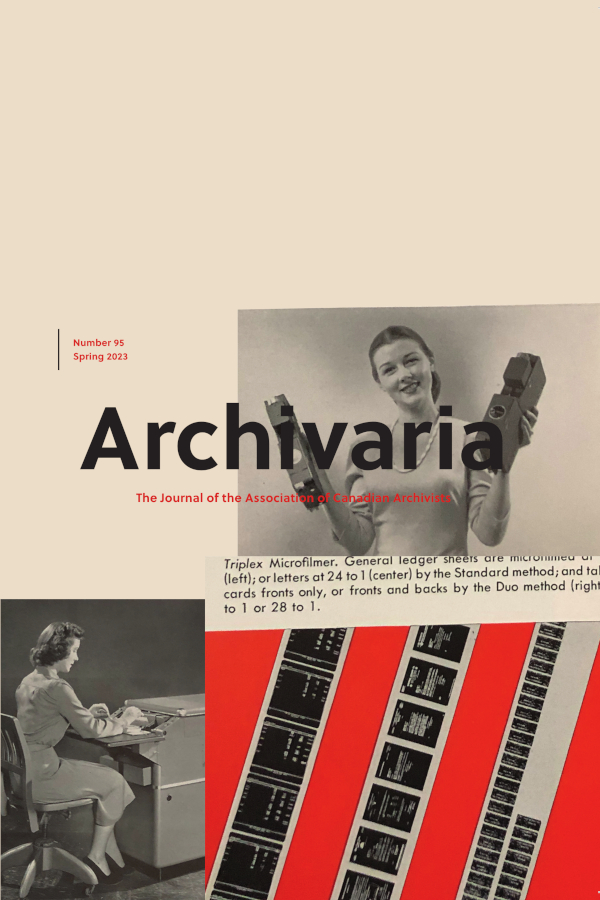Troubling Records
Managing and Conserving Mediated Artifacts of Violent Crime
Abstract
Video records created by perpetrators and witnesses of violent crime are increasingly used as evidence in criminal investigations and court proceedings. When these records include the sexual assault, torture, and murder of individuals, they carry significant power to harm those exposed to them, but most importantly, through repeated viewing, they continue to harm those individuals whose suffering is immortalized therein. Using case study methods, including in-depth interviews with those centrally involved in the case, interviews with criminal justice professionals currently working with video evidence of violent crime, and a review of official documents and media reports, this article examines the tragic Canadian case of serial killers Paul Bernardo and Karla Homolka and the videos they recorded of their crimes. We observe that challenging decisions regarding the handling of video records of violent crime during the investigation process, the viewing of such records in court, and access to them by the public and press during the criminal justice process continue to be areas of concern and contestation, pitting principles of open justice against those of victim dignity and privacy. However, challenges regarding access to video records do not end with a trial and an ultimate verdict of guilt or innocence; rather, decisions continue to be made about the preservation or destruction, the storing and cataloguing, and access to archived material. In examining questions regarding the preservation and continued use of the records, we conclude that a responsible and ethical approach to these challenges is best achieved through what Caswell called a survivor-centred approach. We suggest that this approach should include recognizing the traumatic potentiality of records, providing safety and support to those affected, recognizing the potential of records to produce and perpetuate injustice, respecting the autonomy and decisions of survivors, and accepting and facilitating the right to be forgotten.
Authors of manuscripts accepted for publication retain copyright in their work. They are required to sign the Agreement on Authors' Rights and Responsibilities that permits Archivaria to publish and disseminate the work in print and electronically. In the same agreement, authors are required to confirm that "the material submitted for publication in Archivaria, both in its paper and electronic versions, including reproductions of other works (e.g. photographs, maps, etc.) does not infringe upon any existing copyright." Authors of manuscripts accepted for publication retain copyright in their work and are able to publish their articles in institutional repositories or elsewhere as long as the piece is posted after its original appearance on archivaria.ca. Any reproduction within one year following the date of this agreement requires the permission of the General Editor.





